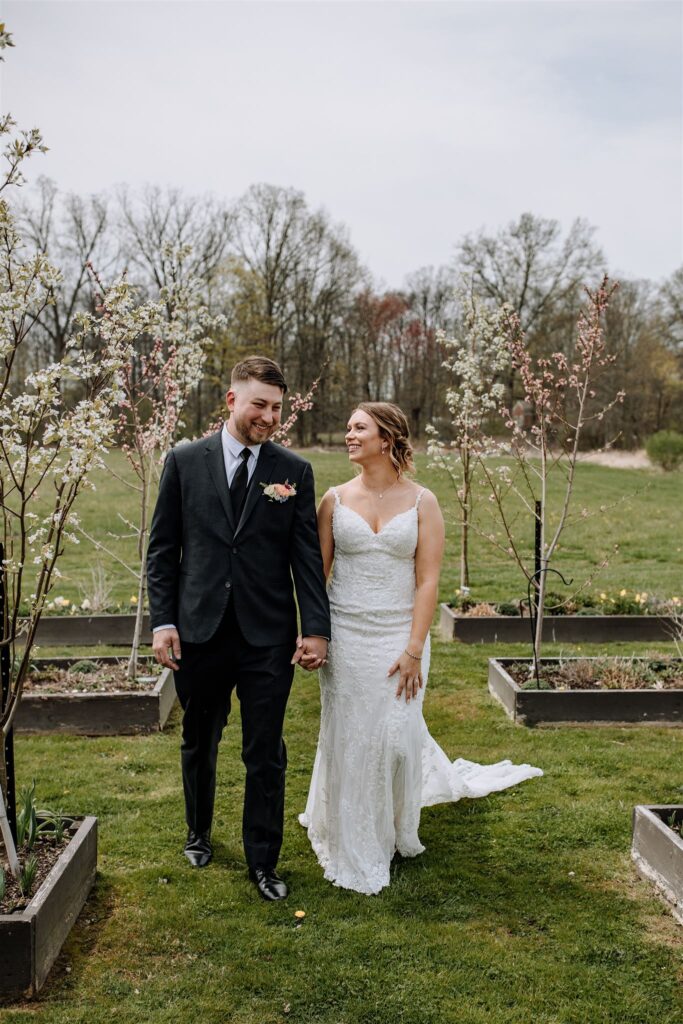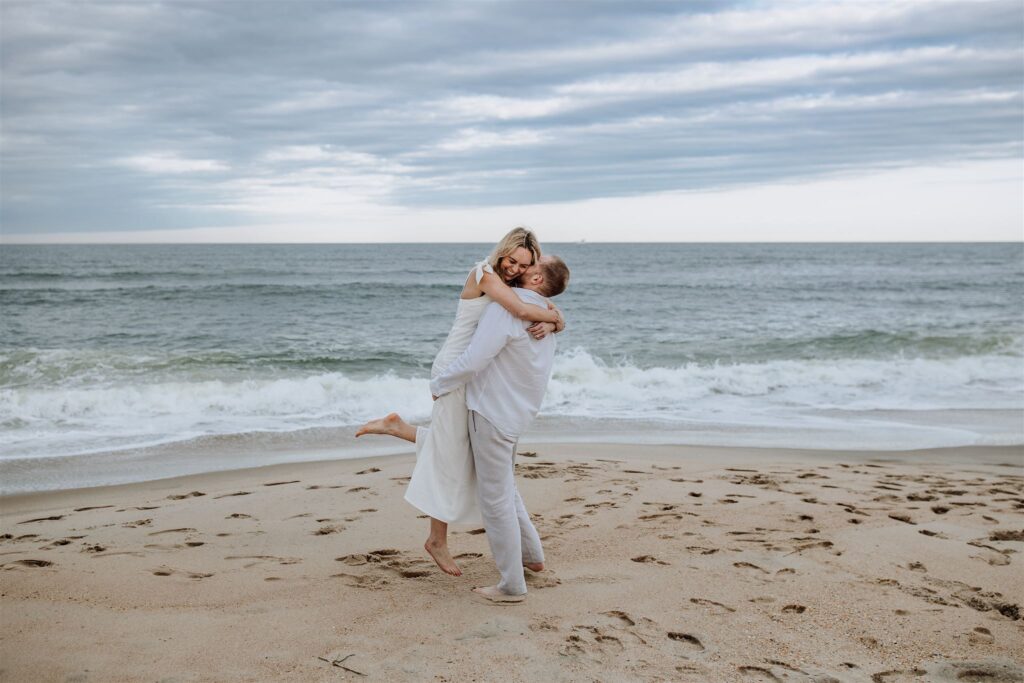
How to balance a full time day job while aspiring to be a photographer?
By almost any standard, the idea of being a professional photographer sounds like a “dream” job...right?
We certainly felt that way, which tugged at us for years until we started down that path ourselves.
After years of hard work and running a full time wedding & portrait photography business alongside full time day jobs, we can definitively say that “Yes! This is a dream job!”
The truth is – many people aspire to be photographers.
Almost anyone can become a photographer…
It’s one of the most accessible hobbies – since cameras are such a crucial part of our day-to-day lives thanks to our phones and social media.
Taking this passion for photography and converting it into a job where you can make good money takes some hard work and perseverance, but in the end it can pay off in spades!
In this article, we want to share some tips and tricks for balancing a full-time day job with the dream of becoming a professional photographer.

Know your WHY
While you might love photography, and even a specific type of photography like portraits or weddings or elopements, doing it full time as a professional can put a damper on the creative and artistic side of it. For some people, though, being a professional has the opposite effect – and can push you to create your best work.
An important thing to think about if you’re an aspiring photographer is to take a good hard look at yourself and ask…why do I want to be a photographer?
As full time, professional photographers ourselves…we can come up with a quick shortlist of reasons why it’s so great such as:
- Flexible schedule
- Your income is not capped by a salary
- Unlimited vacation time
- It feels good to document people and their events
- You meet some really cool people
On the same hand, we can think of reasons why being a full-time photographer isn’t so fun…
- Creativity can get strained if you have a lot of work
- During tough times, there can be a lot of financial burdens
- Weekend availability may be limited (especially if you shoot weddings or events)
- The cost of health care in the USA is…rough
- Photography is a client service job, and some clients can be…not fun to work with
Knowing your WHY is a huge topic of conversation but if we had to sum it up – if you’re an aspiring photographer, don’t let money be your only focus (or you will burn out). Instead, think about the reasons why you love taking photos and what you can bring to the table to keep you interested through thick-and-thin.
If you need help getting some clarity on your WHY – a good starting point is to sign up for our free mini-course on Business Fundamentals for Photographers. In there, we talk more about this topic and help you set your business up for long term success through exploring some key concepts that radiate through every aspect of your business!
Understand what you need to be a full-time photographer
A full-time day job offers you stability (if nothing else).
It took years for us to leave our cushy corporate jobs for this reason alone – you get so used to a paycheck every 2 weeks, cheap(er) health benefits, commuting, having co-workers, having limited responsibilities (at least limited by the work fday), etc. that it can be hard to say “good bye” to a good thing.
In our lives, we were feeling the “golden handcuff” syndrome – the companies we worked with offered enough compensation and perks that it felt like we couldn’t do anything else.
Eventually – a switch went off in us, and we decided our lives would be incomplete if we didn’t pursue photography full time…so that’s what we did!
The earlier you can figure out the checklist of things you’ll need to have in place before you leave for your dream photography job, the easier it will be to cut loose.
A few things we thought about heavily before quitting our day jobs:
- How will I replace the income I’m earning?
- How much money does my business need to make?
- Will I have enough work to do OR will I be sitting around bored?
- How much money should I have in savings in case things go south?
- How will this decision impact my life, or the lives of my family & friends?
Of course, you could always just go for it. Marshall, one of the co-founders of Shoot and Thrive, did just this with his photo business!
Finding a work/life balance is hard (but not impossible)
At the height of our work weeks, balancing full time day jobs with a full time photography business, we would easily work 80, 90, and 100 hour weeks.
At our most vulnerable, we can remember late nights breaking down in tears as we edited away at client galleries coming close to their contracted delivery times.
If it matters to you, the sleepless nights are all worth it when we look back…
Still, balancing work and life has not always been easy. The only consolation for us is that we actually enjoy the work we are doing, so it feels less like grinding away at a 9-5 job and more like working to support this baby we’ve created.
To make it work with our friends & families more, a few things we’ve had to do…
- Schedule time with family & friends in advance (and block it off on a calendar)
- Network and expand our friend group to people in the industry, with similar schedules
- Set cut off times for ourselves to stop working
You will need to make some sacrifices
As with most small business owners, sacrifices are often a necessary part of the job. While having a day job does offer some stability and financial security, you will likely have to make some sacrifices in order to help yourself pursue your dream job.
The extent of those sacrifices is completely up to you – and may influence your timeline is going full time as a photographer.
Some examples we can think of from our own lives include…
- Missing family get togethers and holidays to work
- Missing out on once in a lifetime concerts to work
- Not spending money on fun things while we save for the future
Your life circumstances will also influence this. You may have a very different experience if you are a single mom going for it as opposed to someone fresh out of college living with their parents not having to pay rent and having minimal responsibilities. That’s just part of your personal journey, and anyone can make this work! (I am evidence of that!).
Limit your work hours
Setting work hours with hard start-and-stop times can be one way to make balancing a full-time day job with the dream of becoming a photographer.
Create solid workflows for your photography business
When you are short on time and having balance your business with a full time day job, creating workflows that help you get things done faster is one of the keys to your success and long term survival.
There are so many great things you can implement to save time including…
- Template common emails you send
- Add an autoresponder
- Set up automations and reminders in your CRM
- Use a scheduler for booking calls and sessions
We discuss workflows for photography businesses in Systems and Processes Course, part of The Photography Business Academy.
Have a defined office space, and stick to it
When you are working on your photography business, you will want to limit your work efforts to an office space (or a space otherwise designated for working if you don’t have a home office).
When we stopped working throughout our home, and started limiting our work to one room, it made a world of difference on our mental health and work performance.
It makes it easier to disconnect from work and actually enjoy your leisure at home when you’re not in your office space. And, the added benefit, when you are in there – you’ll probably be more productive.

Get a good workout routine in place
We’re not going to spend a ton of time on this one (because come on, we all know this). But – speaking from first hand experience, once we integrated consistent workouts into our daily routines, it made our lives much better for it. It also helped us better manage the physical and mental stress that comes from having two jobs – something that’s a challenge no matter what they are.
If you’re not sure what to do for a workout routine, there are a lot of free programs available online to follow. If you need some extra help, we’ve used Digital Barbell to help get in shape with their pre-built and custom coaching programs.
Learn how to set boundaries with clients (and others in your life)
Setting boundaries with your clients will help you ensure you’re doing exactly what you plan to for them.
In the world of photography, there are many opportunities for clients to ask for more – like more edits on photos, more images, etc. and it’s important to set reasonable expectations before, during, and after your shoot with them.
In some situations, boundaries become defined when we say “no” – something that isn’t always fun, but often is necessary.
While having discussions with our clients is vital, just as important is making these expectations clear in a contract outlining the specific services they will receive.
Outsource time consuming tasks
As your photography business begins to grow, but you’re not quite ready to quit your day job, outsourcing can be an excellent solution to enable continued growth without having to consume all of your free time.
Some common tasks that photographers outsource include…
- Photo editing and culling
- Emails, wedding timelines, and more with a Virtual Assistant
- Blog writing
- Website design
In Conclusion
Balancing a full time day job with the dream of being a photographer is not always easy, but can be very rewarding.
We hope this article has been able to shed some light on some of the key things you need to think about as you walk this journey towards becoming a pro photographer yourself.
If you want to make photography your full time job and create a stronger business, we work with students through 1:1 business coaching and The Photography Business Academy. Get in touch today!

Honesty is a cornerstone of Shoot and Thrive, so we want you to know that some links in this post are affiliate links. This means we may earn a commission if you make a purchase—at no additional cost to you. We only recommend products and services we trust, have used ourselves, or have thoroughly researched based on industry feedback. Our goal is to provide solutions that genuinely help, whether they come from our direct experience or the collective knowledge of the photography community.
As photography business educators, we believe it's important for educators in this industry to be active photographers themselves. The images used throughout this website were taken through our photo studios - Hand and Arrow Photography and Marshall Scott Photography, except for stock images or if otherwise noted.
Turn Your Passion into a Thriving Business
Transform your photography business into a streamlined, profitable venture that gives you more time, freedom, and confidence.
With the Photography Business Academy, you’ll have a step-by-step guide to building the business—and life—you’ve always dreamed of. From branding to marketing, finances to client experience, we’ve got you covered.
7 Ways to Solve Any Problem
In Your Photography Business
Free PDF
Get Instant Access
When you sing up, you'll also receive regular updates on creating a successful business.
Navigation
Shoot and Thrive is an ethically created resource for photographers needing mentorship, coaching, or business education. We believe in creating content that’s easy to digest and retain while incorporating educational best practices, so you gain clarity and confidence as a business owner.